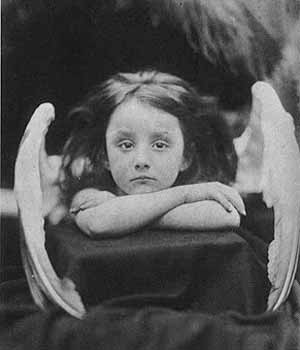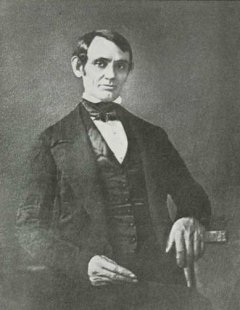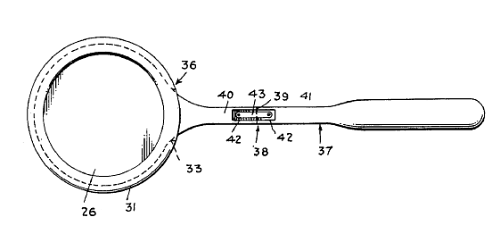calamistrate
v. to curl the hair
Sugar and Spice

Excerpts from the essays of 19th-century schoolboys, from Caroline Bigelow Le Row’s English as She Is Taught, 1887:
“Girls are very stuckup and dignefied in their maner and behaveyour. They think more of dress than anything and like to play with dowls and rags. They cry if they see a cow in afar distance and are afraid of guns. They stay at home all the time and go to Church every Sunday. They are al-ways sick. They are al-ways funy and making fun of boys hands and they say how dirty. They cant play marbels. I pity them poor things. They make fun of boys and then turn round and love them. I dont beleave they ever kiled a cat or any thing. They look out every nite and say oh ant the moon lovely. Thir is one thing I have not told and that is they always now their lessons bettern boys.”
“Timidity is a disease very prevelent among our American women. It is thought by them to be an ornament to their charms. How many young women faint by the sudden appearance of a rat from its hideing place! Oh! they do declare it’s impossible to live where these dreadful creatures make their homes they ask Ma cant she and wont she please to try to secure some remedy so they can be destroyed. You will see the young ladies leap up over stones and steps of great height so as to escape the barks of the dog, if they are walking with a friend of the male kind they will cling to the masculine arm and beseach him to walk so that she might loose sight of that horrible creature known as a dog.”
Transmutation
Discovered by Zoran Radisavljevic — this set of 36 chemical elements:
HYDROGEN XENON BARIUM TANTALUM BORON PRASEODYMIUM IRIDIUM HASSIUM PLUTONIUM THALLIUM GERMANIUM SCANDIUM THULIUM EINSTEINIUM ERBIUM CADMIUM BERYLLIUM TIN ACTINIUM SEABORGIUM CARBON FLUORINE INDIUM OSMIUM NITROGEN POTASSIUM LEAD PROTACTINIUM SILICON LUTETIUM RHENIUM MERCURY ARGON NEODYMIUM PLATINUM THORIUM
… can be anagrammed into another set of 36 elements:
LANTHANUM OXYGEN TERBIUM RADON SAMARIUM DYSPROSIUM IODINE BOHRIUM ALUMINIUM CHROMIUM PALLADIUM TUNGSTEN LITHIUM CAESIUM DUBNIUM MEITNERIUM NIOBIUM YTTERBIUM GALLIUM ARSENIC IRON SODIUM NOBELIUM FRANCIUM ASTATINE STRONTIUM COPPER GADOLINIUM YTTRIUM SELENIUM CURIUM CHLORINE PROMETHIUM GOLD URANIUM ANTIMONY
UPDATE: Mike Keith discovered a “doubly true” transmutation in 1999 — this list:
HYDROGEN ZIRCONIUM TIN OXYGEN RHENIUM PLATINUM TELLURIUM TERBIUM NOBELIUM CHROMIUM IRON COBALT CARBON ALUMINUM RUTHENIUM SILICON YTTERBIUM HAFNIUM SODIUM SELENIUM CERIUM MANGANESE OSMIUM URANIUM NICKEL PRASEODYMIUM ERBIUM VANADIUM THALLIUM PLUTONIUM
… can be rearranged to spell:
NITROGEN ZINC RHODIUM HELIUM ARGON NEPTUNIUM BERYLLIUM BROMINE LUTETIUM BORON CALCIUM THORIUM NIOBIUM LANTHANUM MERCURY FLUORINE BISMUTH ACTINIUM SILVER CESIUM NEODYMIUM MAGNESIUM XENON SAMARIUM SCANDIUM EUROPIUM BERKELIUM PALLADIUM ANTIMONY THULIUM
And in this case, the equality still holds if you replace each element with its atomic number.
(Thanks, Tony.)
Balance

Draw two circles with three tangents as shown.
AB will always equal CD.
“Singular Case of Odoriferous Emanations”
In the 34th Volume of the Memoirs of the Royal Academy of Sciences of Turin (1830) Dr. Speranza of Parma relates the case of an individual whose left fore arm emitted an odor of Amber, or of Benzoin, or Balsam of Peru. The odoriferous emanations were sometimes so strong that they filled the whole of the large room in which the Doctor conducted his experiments upon this personage, whom he suspected at first of some charlatanry, but of whose sincerity he was soon convinced. He was a man of thirty four years of age, of a robust constitution, (having, until that time enjoyed constant health) agreeable eyes, expressive features, dark thick hair, a ruddy countenance, muscles prominent,–a man of ardent feelings and quick penetration; to whom nature had been liberal in her endowments. It did not appear that electricity had any part in the production of this singular phenomenon. An attack of bilious fever, in the course of two months, destroyed the cause, and the effect did not return after his recovery.
— American Journal of Science, August 1832
Quick Thinking

During the Black Hawk War, Abe Lincoln was leading 20 men through a field when he saw they’d need to pass through a narrow gate.
“I could not, for the life of me, remember the proper word of command for getting my company endwise, so that it could pass through the gate,” he later recalled.
“So, as we came near, I shouted, ‘Halt! this company is dismissed for two minutes, when it will fall in again on the other side of the gate.'”
Skinner on Campus
A psychologist at a girl’s college asked the members of his class to compliment any girl wearing red. Within a week the cafeteria was a blaze of red. None of the girls were aware of being influenced, although they did notice that the atmosphere was more friendly. A class at the University of Minnesota is reported to have conditioned their psychology professor a week after he told them about learning without awareness. Every time he moved toward the right side of the room, they paid more attention and laughed more uproariously at his jokes, until apparently they were able to condition him right out the door.
— W. Lambert Gardiner, Psychology: A Story of a Search, 1970
Noted
Christopher Morley named his cats Shall and Will, “because nobody can tell them apart.”
Sparing the Rod

In 1953 George F. Jorgenson invented a paddle with a breakaway handle, for use by overzealous disciplinarians.
“A primary object of this invention is to provide a paddle for use in disciplining a child, the paddle having means for preventing accidental injury to the child by striking too hard a blow.”
Ten years later, Ashley Pond did the same thing for angry golfers.
Replies
Life is a jest; and all things show it.
I thought so once; and now I know it.
— Matthew Prior’s epitaph
Ah! Matt.: old age has brought to me
Thy wisdom, less thy certainty:
The world’s a jest, and joy’s a trinket:
I knew that once: but now–I think it.
— James K. Stephen, “Senex to Matt. Prior”
I hold it true, whate’er befall;
I feel it when I sorrow most;
‘Tis better to have loved and lost
Than never to have loved at all.
— Tennyson, “In Memoriam A.H.H.”
I feel it when the game is done,
I feel it when I suffer most.
‘Tis better to have loved and lost
Than ever to have loved and won.
— Gerald Bullett, “Footnote to Tennyson”
